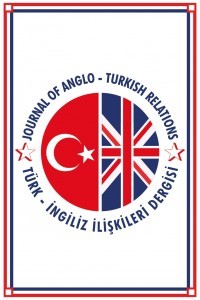Interview with the cinema and theatre actress, Suna Yıldızoğlu (Istanbul, 9 June 2021)
Suna Yıldızoğlu (born in Bournemouth, UK, as Sonja Eady) is a British-Turkish actress based in Istanbul. She came to Turkey in 1974, and married Kayhan Yıldızoğlu, upon which she took on Turkish citizenship and the name, Suna. She played alongside Cüneyt Arkın in the film “Yıkılmayan Adam”, with Zeki Alasya and Metin Akpınar in “Petrol Kralları”, Kemal Sunal in “Gol Kralı”, and Metin Belgin in “Sokaktaki Adam”, among many others. In 1981, she won competed in the 17th Golden Orpheus Acting Contest and won the Özel Burgaz Award and the Journalists Award. In 1996, she won the award for Best Female Actor at the 18th SİYAD Turkish Cinema Awards for her role in “Sokaktaki Adam”. Between 1978 and 2000, she took on roles in films, TV series, advertisements, as well as doing photo modelling and singing. In 2000, she left the stage and cinema to move to Australia for her children’s education. Here, she set up a small business, “Alaturka”, which was a success in promoting Turkey on a small-scale. Seven years later, she returned to Turkey, which she has called her “second homeland”. She still resides in Istanbul.
Interview with the cinema and theatre actress, Suna Yıldızoğlu (Istanbul, 9 June 2021)
Suna Yıldızoğlu (born in Bournemouth, UK, as Sonja Eady) is a British-Turkish actress based in Istanbul. She came to Turkey in 1974, and married Kayhan Yıldızoğlu, upon which she took on Turkish citizenship and the name, Suna. She played alongside Cüneyt Arkın in the film “Yıkılmayan Adam”, with Zeki Alasya and Metin Akpınar in “Petrol Kralları”, Kemal Sunal in “Gol Kralı”, and Metin Belgin in “Sokaktaki Adam”, among many others. In 1981, she won competed in the 17th Golden Orpheus Acting Contest and won the Özel Burgaz Award and the Journalists Award. In 1996, she won the award for Best Female Actor at the 18th SİYAD Turkish Cinema Awards for her role in “Sokaktaki Adam”. Between 1978 and 2000, she took on roles in films, TV series, advertisements, as well as doing photo modelling and singing. In 2000, she left the stage and cinema to move to Australia for her children’s education. Here, she set up a small business, “Alaturka”, which was a success in promoting Turkey on a small-scale. Seven years later, she returned to Turkey, which she has called her “second homeland”. She still resides in Istanbul.
___
- Suner, Asuman. New Turkish Cinema: Belonging, Identity and Memory. London: I.B. Tauris, 2009.
- Özgüç, Agah, A Chronological History of the Turkish Cinema 1914-1988, trans. Giovanni Scognamillo. Istanbul: Ministry of Culture and Tourism, 1988.
